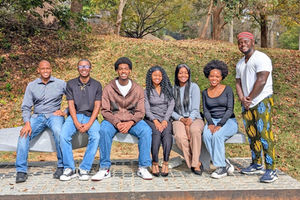Unicef supports efforts to safeguard children in Tanzanian prisons

What you need to know:
- Despite ongoing efforts procedural gaps remain in the protection and supervision of children in prisons, which calls for the need to amend the Prison Act (Chapter 58) and institutional guidelines to improve operations related to the welfare of children in custodial settings
Morogoro. The United Nations Children's Fund (Unicef), in partnership with the Tanzania Prison Service, has conducted a two-day training seminar aimed at strengthening the capacity of prison officers to safeguard the welfare of children residing in prisons with their incarcerated parents.
The seminar, which concludes today, December 12 2024, seeks to equip prison officers with skills and knowledge to protect children whose parents—particularly mothers—are serving sentences or are in custody.
Speaking at the opening session in Morogoro yesterday, the Chief Coordinator of the Gender and Children's Desk within the Prison Service, Commissioner Bertha Minde, said the responsibility of prison leaders to empower reception officers to mitigate the adverse effects of imprisonment on children.
"Children living in prisons with their parents are among the most vulnerable members of society. It is our duty to ensure they are provided with quality services and a safe environment to support their mental, physical, and emotional development," said Commissioner Minde.
She further emphasised that the training, organised in collaboration with Unicef, would enhance the capacity of reception officers to address challenges faced by children in prison settings, thereby safeguarding their development.
Unicef's Child Protection Officer, Mr Joseph Matambwi, underscored the organisation's commitment to supporting the Tanzanian government in protecting children, including those in prison with their mothers.
"The law allows children to stay with their mothers in prison from birth until weaning. However, this transition back into the community often has psychological and developmental consequences for the child," said Mr Matambwi.
The Head of the Legal and Operations Division of the Prison Service, Commissioner Nicodemus Tenga, noted that prison officers operate under strict legal mandates to receive and detain individuals as stipulated by Tanzanian laws and regulations.
Despite ongoing efforts, Assistant Commissioner Mbezi acknowledged that procedural gaps remain in the protection and supervision of children in prisons.
He stressed the need for amending the Prison Act (Chapter 58) and institutional guidelines to improve operations related to the welfare of children in custodial settings.
Unicef’s collaboration with the Prison Service represents a critical step in addressing these challenges, ensuring that children in prisons are shielded from harm and given the care they need to thrive.




